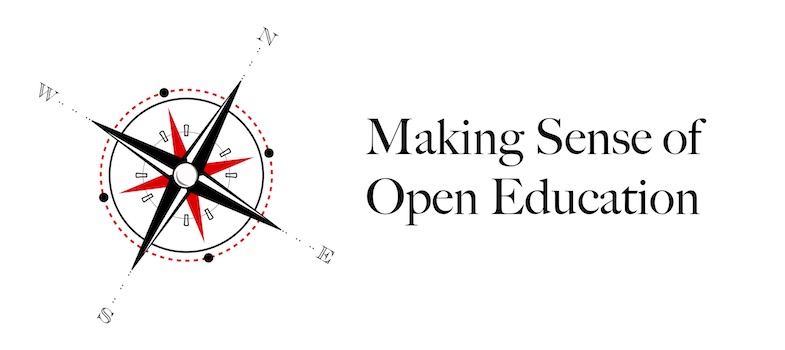(to the facilitators: if you get tired of reading about Wikipedia in Education, let me know and i'll try to find other examples. I do write on it as it relates directly to my praxis as a volunteer and professionally)
Open education in schools:
MOOCs:
While Wikipedia was born out of sheer volunteer willpower ("we will build this knowledge repository because we want to/can do it), its' future evolution might depend on providing systematized training (MOOCs) to interested beginners. Experiments have been carried out in French and Arabic with general public audiences in mind, resulting in the creation of new articles and the improvement of existing ones. In Argentina, a MOOC specifically tailored for educators is its 4th iteration with positive feedback and action from the participants. The largest example of online training and work is carried out by the WikiEdu Foundation, which caters to higher education institutions in the US and Canada, providing professors and their students with online training and support to create contents for the Wikipedia.
Distance education:
Wikipedia was necessarily born in the age of the Internet. If distance education is all-to-briefly described as the provision of written contents to learners (without consideration of the certification), Wikipedia, with its 45 million articles in 300 languages certainly fits the bill. Students sometimes actually refer to Wikipedia as a significant source of assistance for their learning with comments such as "i owe X% of my graduation to Wikipedia."
Open learning:
While many educators feel the presence of Wikipedia through their students' participation in the classroom, they mostly conceive Wikipedia as contents to be consumed. There is no denying that Wikipedia is a treasure trove of educational contents, critically so in places with limited access to libraries. However, when discussing the role of Wikipedia in education, the "value proposition" lies in having students create contents that belong in an encyclopedia. The process of creating those contents, publishing them for the world to read -and improve- them, interacting with real audiences and collaborators around the world is very much in line with the tenets of open learning. From the perspective of Wikipedia assignments (or Wikipedia content creation), learning is done with the world, for the world to benefit from, instead of an agoraphobic experience.
E-learning:
E-learning is the evolution of the concept of distance education, with the affordances of ICT. In the past decade, that term is progressively replaced by the term MOOCs. E-learning defines a new space/platform to facilitate learning, one that relies heavily on the possibilities that the Internet and cheap computing power has made possible.
E-learning can become something else though, as it transcends the limitations of Distance Learning: the promise of real-time learning, together with Heutagogy may well define the future of learning. In that scenario, as individuals come to understand their learning needs (to respond to opportunities and challenges they face in their lives) and go on pursuing the learning contents and experiences that provide them with the competencies they choose to focus on. Accompanied by micro-certifications (such as open badges), individuals can move away from rigid pre-existing structures that pre-define what needs to be learned, and create their own paths. This is not original, since George Siemens and Stephen Downes were promoting those views when the term MOOC was promoted. But, as it was noted in the recommended paper, that term was effectively coopted by Coursera and EdX, leaving aside all claims of transforming the educational process and turning back to the narrower definition of e-learning as distance learning with ICTs at a larger scale than e-learning in the 90s had dreamed of.
